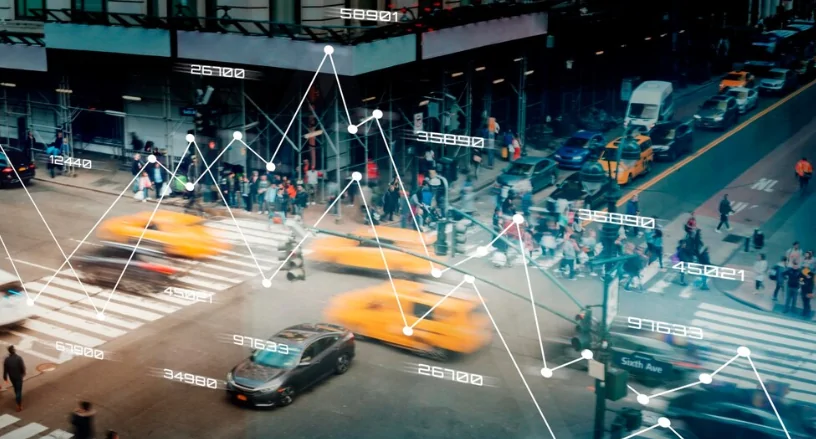As urban populations continue to grow, cities are faced with increasing difficulties in managing resources, infrastructure, and public services.
Smart city solutions offer a way to enhance urban management through advanced technology, data-driven decision-making, and automation. By integrating smart systems, cities can improve efficiency, sustainability, and the overall quality of life for residents.
Here’s how smart city solutions can be used to create a better-managed urban environment.
Smart Traffic and Transportation Systems
One of the biggest challenges in urban management is controlling traffic, minimizing congestion, and ensuring smooth transportation.
Smart traffic systems use sensors, cameras, and AI-driven analytics to monitor and manage the flow of traffic in real time.
Adaptive traffic signals adjust timing based on real-time traffic conditions, reducing delays and fuel consumption for drivers.
Intelligent public transport systems provide commuters with real-time updates on bus and train schedules, optimizing routes based on demand.
Smart parking solutions help drivers find available spots through mobile apps, reducing unnecessary traffic and time spent searching for vacant parking spots.
By implementing these technologies, cities can enhance mobility, reduce carbon emissions, and improve public transportation efficiency.
Energy-Efficient Smart Grids
Managing the consumption of energy in cities is crucial for sustainability. Smart grids use IoT sensors and AI to keep track of energy usage and distribution.
Automated demand-response systems adjust power distribution based on real-time demand, preventing energy wastage.
Smart meters offer households and businesses data on energy usage, which encourages conservation efforts.
The integration of renewable energy sources can help better manage solar and wind power within the grid.
These solutions not only improve energy efficiency but also contribute to reducing operational costs and promoting environmental sustainability.
Waste Management Optimization
Traditional waste collection methods can be very inefficient. Overflowing bins and unnecessary consumption of fuel are some reasons.
Smart waste management systems, however, can improve efficiency using collection schedules obtained through data.
IoT-enabled sensors in trash bins can keep an eye on the fill levels and notify waste collection services to pick them up when they are full.
AI-based route optimization can help collection trucks choose the most efficient routes and reduce fuel use and emissions.
Smart city solutions in waste management also help cities reduce pollution and operational costs.
Public Safety and Surveillance
Public safety is one of the main priorities for urban management. Smart technologies can help prevent crime, improve emergency response, and aid in disaster management.
AI-powered surveillance cameras can detect unusual activities and alert authorities in real time. Smart emergency response systems use GPS tracking to deploy first responders faster. IoT-connected disaster monitoring systems predict and mitigate risks such as floods, earthquakes, and fires.
With these systems in place, cities can respond more effectively to emergencies and improve safety and security for residents.
Digital Governance and Citizen Engagement
Efficient urban management also depends on how well governments communicate with citizens.
Smart city solutions also offer platforms for digital governance and public engagement. E-government portals, for example, allow residents to access public services online without having to wait.
Mobile applications for reporting infrastructure issues, such as potholes or broken streetlights, and AI-powered chatbots help residents with inquiries, improving response times for municipal services.
By leveraging digital tools, governments can improve transparency, increase citizen participation, and streamline administrative processes.

